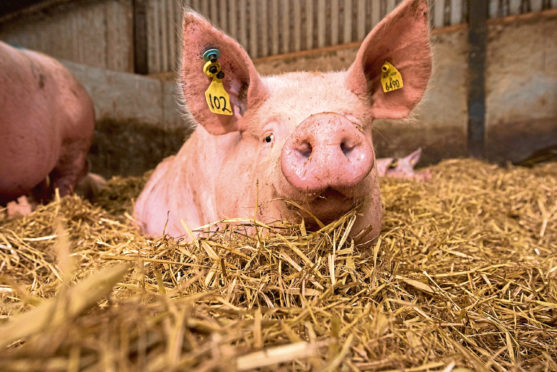New computer modelling tools are being developed as part of an international project to help predict how pigs will grow in different environments.
Researchers at Edinburgh University’s Roslin Institute are working with scientists at Iowa State University.
They say the development of a new modelling tool could help pig farmers produce genetically improved livestock, by providing a way to better predict the genetics that underpin a pig’s ability to grow under different conditions.
The researchers will combine existing models of the function and structure of the genetic make-up of pigs with models of growth that have been developed by animal nutritionists and used to formulate diets for pigs.
These will be used with data on feed intake, body weights and body composition of pigs, provided by a commercial breeding company.
The modelling tool will be validated using the data from the breeding company to demonstrate its ability to improve prediction of pig growth under different temperatures, humidity levels, diets and diseases.
“Existing genomic models often fail to predict how the offspring of an animal will develop under diverse conditions,” said Andrea Doeschl-Wilson, deputy head of the genetics and genomics division at the Roslin Institute.
“By integrating growth models from animal nutritionists with existing models, and using real data from pigs, we hope that our model will help farmers predict how pigs will grow in a range of environments.”
The project is backed by a $500,000 (£381,000) grant from the US National Institute of Food and Agriculture.
